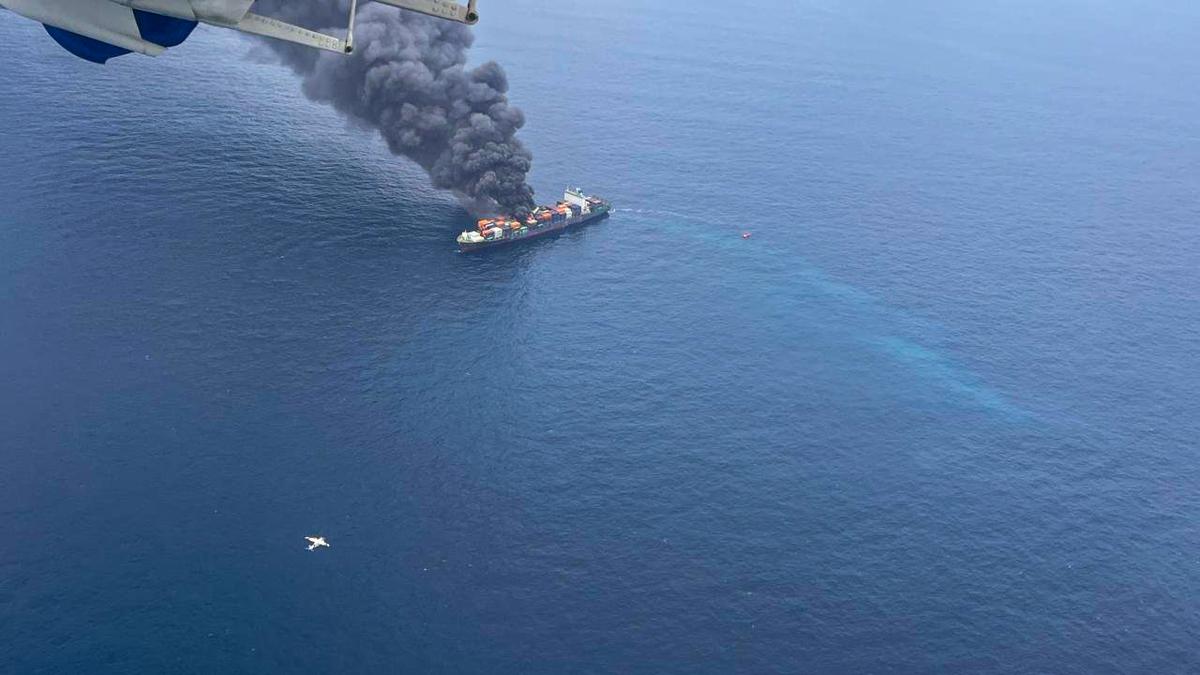The Singapore-flagged container vessel Wan Hai 503 that caught fire in the sea off the Kannur coast in Kerala
| Photo Credit: ANI
The back-to-back ship accidents off the coast of Kerala, including the sinking of MSC Elsa 3 and the explosion on the Singapore-flagged vessel Wan Hai-503, raise questions on the lax regulatory inspections being carried out by different agencies on ships. The incidents also highlight the need for a stronger Port State Control (PSC) regime along with real-time accesses to the details of dangerous cargo.
The PSC regime envisions identifying substandard ships at any port in India and ensuring seaworthiness before the vessels are allowed to sail out of the port.
The ships registered in various countries, especially under a flag of convenience (FoC) — a system in which ships are registered in countries where more lenient regulatory regimes exist — have to be subjected to routine inspections at various ports to ensure the safety, maintenance, manning, etc.
According to reports, the 2000-registered MSC Elsa, the ship that sank off the coast of Kerala on May 25 spilling hazardous substances posing serious threat to the marine ecosystem and livelihood of thousands of fishermen, had been flagged for many deficiencies in the past, including at Tuticorin port in 2023, although the ship had a seaworthy certification.
Speaking to The Hindu, a senior officer at the office of the Directorate General of Shipping said it was the Mercantile Marine department which had to conduct periodic inspections both on vessels registered in India and those registered in foreign nations during the port of call.
“We don’t think there was any regulatory laxity or slackness in ensuring the safety of vessels calling at Indian ports. Moreover, a ship tilting to one side during its voyage doesn’t mean that it was substandard or lacks fitness. There would be plenty of reasons which have to be ascertained through a detailed investigation,” he said.
Maritime law expert V.J. Mathew said it had been around a month since the ship sank off the coast of Kerala. “There is a clear remissness in conducting a primary investigation and submitting a report in connection with the accident,” he said.
“Even at this moment, I don’t think the full detailed manifest of the containers carrying hazardous materials onboard MSC Elsa has been released,” said Mr. Mathew.
N.S. Pillai, Chairman, Kerala Maritime Board, said the State had no role in enforcing the rules or carrying out surveys and inspections on vessels although deficiencies had been flagged in the past.
“Our role is mainly to provide necessary infrastructure for the berthing of vessels that call at ports under the board,” he said.
The experts are of the view that the Centre should effectively implement the PSC regime and fix accountability for such accident without delay.
Published – June 19, 2025 09:36 pm IST





